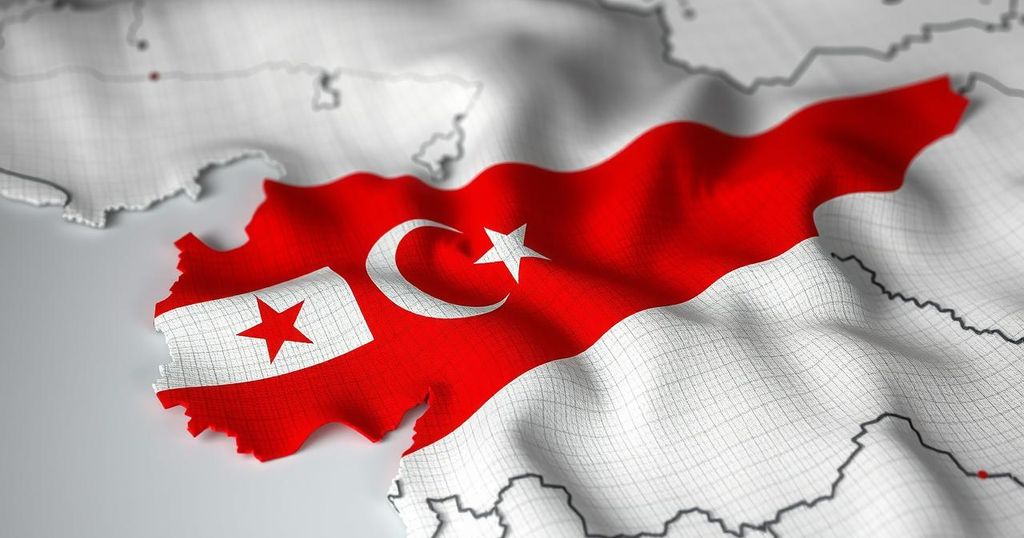Turkey’s Strategic Crossroads: Navigating Syria’s Complex Landscape
Turkey’s strategy in Syria faces military, diplomatic, and economic challenges as it navigates a deadlock with Russian forces and US interests. Seeking solutions, Ankara may shift its Kurdish policy, considering dialogue with the Assad regime and involving the PKK leader in discussions to resolve the conflict. However, hurdles remain, including opposing regional powers, internal political dynamics, and risks of escalating violence, especially in the context of rising tensions involving Israel.
Turkey’s strategy in Syria is currently at a critical turning point, facing challenges from military stalemates, Russian resistance, and economic pressure from the United States. In search of a resolution, Ankara is exploring political strategies that could involve a shift in its approach toward the Kurdish population. The Turkish government is balancing multiple conflicting strategies, including potential engagement with the Syrian government to diminish the influence of the YPG, which is the Kurdish militia that dominates the Syrian Democratic Forces (SDF). Meanwhile, the leader of the Kurdistan Workers’ Party (PKK), Abdullah Ocalan, could be granted an opportunity to address the Turkish parliament, signaling a desire to de-escalate the conflict with Kurdish groups.
Since the onset of the Syrian conflict, Turkey has concentrated on preventing incursions by PKK-affiliated forces. Turkey conducted military operations between 2016 and 2019 to establish a safe zone devoid of YPG influence, yet these efforts were thwarted by Russia’s diplomatic maneuvers which favored the SDF. The situation has not improved, as the United States continues to bolster the SDF in its anti-ISIS initiatives, leading to deteriorating relations between Turkey and the US, compounded by potential economic sanctions that might affect Turkey’s already strained economy.
Despite engaging in dialogues with Russia, Turkey has made limited progress with Syria, particularly following a year of silence from its president regarding talks with Bashar al-Assad. Erdogan’s recent overtures to facilitate discussions with the Syrian leadership reflect a notable shift in policy, as Turkey seeks to align itself with Damascus to combat common threats. This shift, however, comes with its own challenges due to diverging interests between the two nations and Turkey’s fear of a US-supported Kurdish entity along its border.
Amid heightened tensions in the region, Turkey is further concerned about a potential Israeli alliance with Kurdish forces that could destabilize its position. Additionally, growing conflict in Lebanon may exacerbate the refugee situation, compelling many to seek refuge in Turkey, which already hosts millions of Syrian refugees. Recently, Turkish political dynamics have shifted with calls from Nationalist Movement Party leader Devlet Bahceli for Ocalan to address the parliament, potentially as part of a strategy to quell armed conflict by transitioning to a political solution.
The context of Turkey’s Kurdish issue remains complicated, particularly with the historical failures of past peace processes. The current geopolitical landscape presents significant challenges to any prospective dialogue. Nonetheless, there exists an opportunity for the United States to support Turkey not through direct involvement, but rather by allowing for an alleviation of regional tensions and establishing a coherent dialogue that seeks stability between Turkey and the PKK. Engaging in parallel negotiations that do not link US interests with Turkey’s internal strategies may be key to fostering a sustainable outcome in Syria.
Turkey’s involvement in Syria is deeply rooted in its national security interests, particularly concerning the PKK and its implications for Kurdish autonomy in the region. Since the beginning of the Syrian conflict, Turkey has sought to combat PKK-affiliated forces, specifically targeting the YPG, seen as a terrorist extension of the PKK. The strategic landscape has shifted dramatically with Russia and the US gaining influence and supporting different factions within Syria, complicating Turkey’s military objectives and necessitating a reevaluation of its diplomatic strategy. The intensifying regional tensions, particularly involving Iran and Israel, further complicate Turkey’s position and its need for a viable solution that minimizes security threats along its borders.
Turkey finds itself at a crucial crossroads in Syria as it navigates military, political, and economic challenges. Attempts to pivot towards diplomatic engagement with both the Assad regime and the Kurdish factions reveal Ankara’s recognition of the complex realities on the ground. Despite these overtures, significant obstacles remain, notably diverging interests with Damascus and the ever-present tension with US support for the SDF. Ultimately, Turkey must harmonize its internal policies regarding Kurdish groups with its strategic aims in the volatile Syrian landscape to achieve lasting stability.
Original Source: www.atlanticcouncil.org




Post Comment